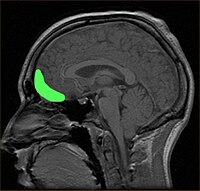
Photo from wikipedia
Limited evidence showed that impulsivity is negatively related to life satisfaction and wellbeing; however, the mechanisms underlying this relationship remain unclear. We aimed through this work to investigate the relationship… Click to show full abstract
Limited evidence showed that impulsivity is negatively related to life satisfaction and wellbeing; however, the mechanisms underlying this relationship remain unclear. We aimed through this work to investigate the relationship between impulsivity dimensions and well-being and to explore the moderator role of mindfulness on this relationship in a sample of Lebanese university students. This cross-sectional study was carried out among 363 university students recruited through convenience sampling through several universities in Lebanon's governorates. Higher mindfulness was significantly associated with better wellbeing in the models that considered urgency and sensation seeking as independent variables. A lack of premeditation and a lack of perseverance were both inversely associated with well-being. The interaction lack of perseverance by mindfulness was significantly associated with wellbeing; for students who were low in mindfulness, more lack of perseverance was significantly associated with a lower wellbeing. Our study suggested that mindfulness practice may offer a promising avenue for implementing strategies aiming at improving the well-being of students with high levels of impulsivity.
Journal Title: International journal of environmental health research
Year Published: 2023
Link to full text (if available)
Share on Social Media: Sign Up to like & get
recommendations!